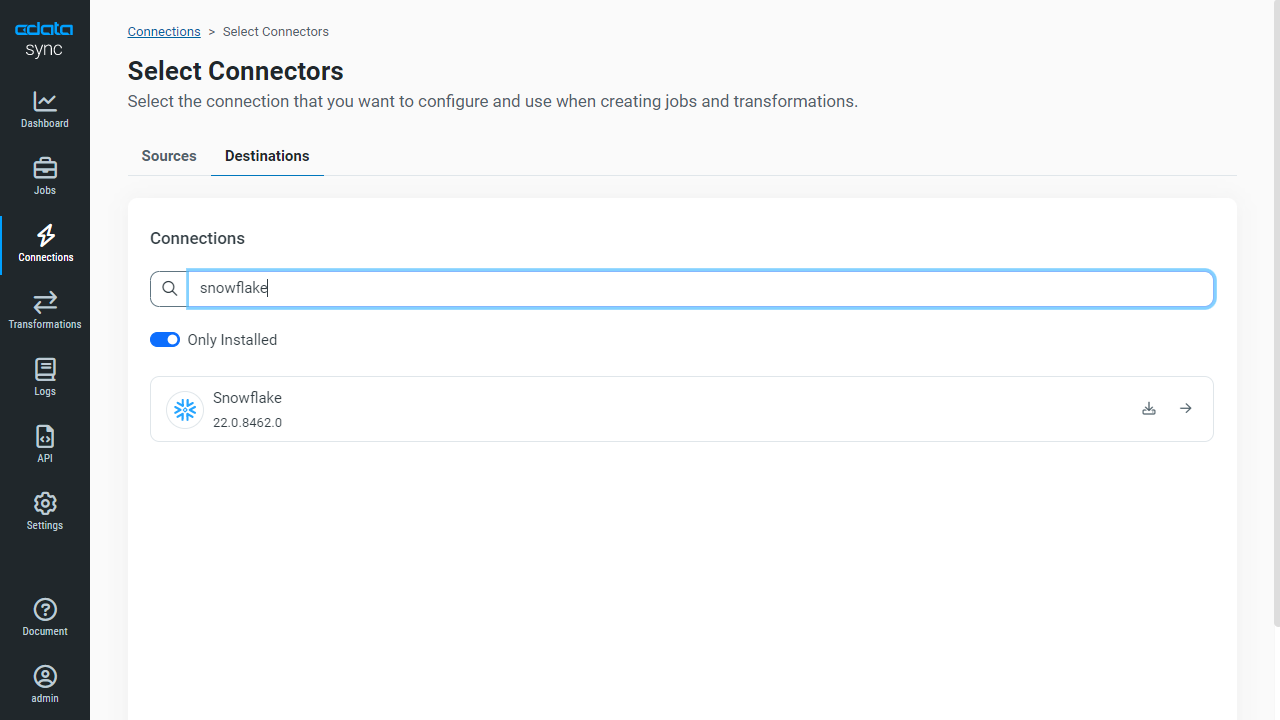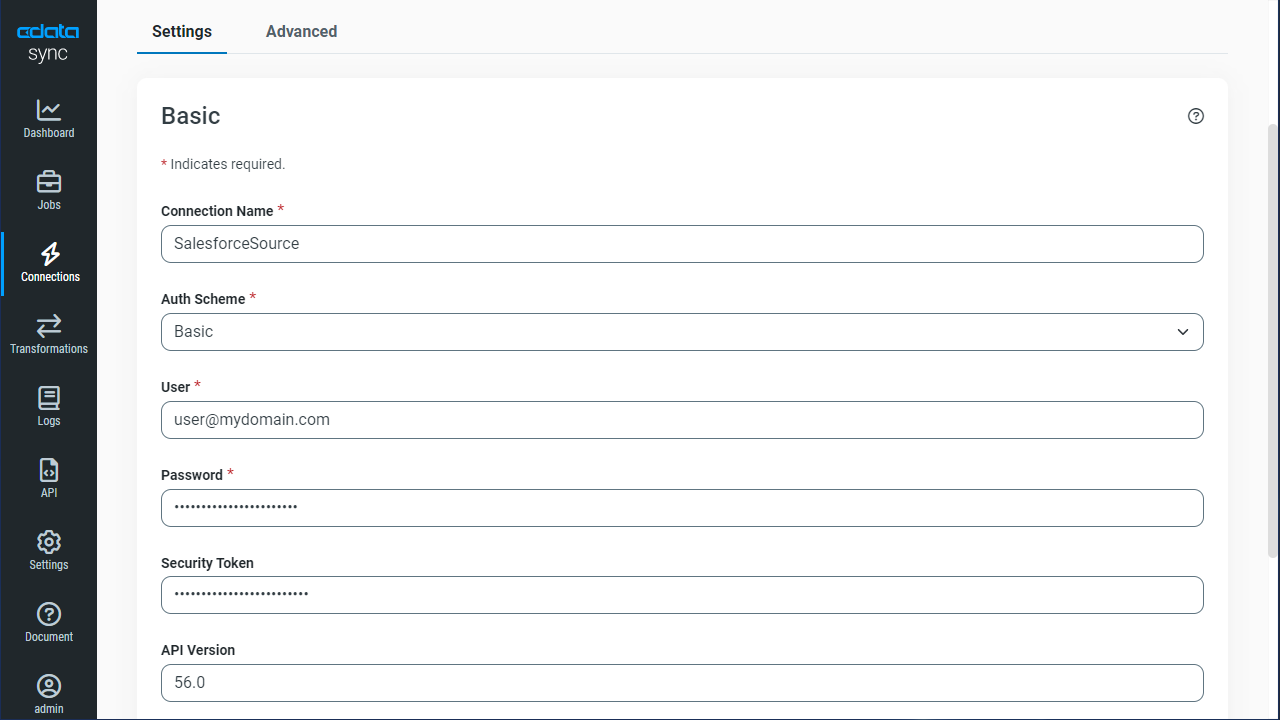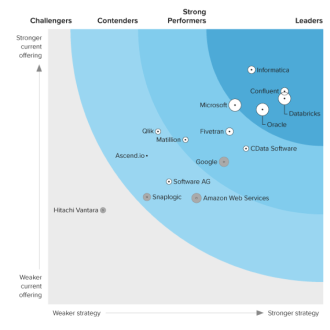Discover how a bimodal integration strategy can address the major data management challenges facing your organization today.
Get the Report →Automated Continuous Bullhorn CRM Replication to Snowflake
Use CData Sync for automated, continuous, customizable Bullhorn CRM replication to Snowflake.
Always-on applications rely on automatic failover capabilities and real-time data access. CData Sync integrates live Bullhorn CRM data into your Snowflake instance, allowing you to consolidate all of your data into a single location for archiving, reporting, analytics, machine learning, artificial intelligence and more.
Configure Snowflake as a Replication Destination
Using CData Sync, you can replicate Bullhorn CRM data to Snowflake. To add a replication destination, navigate to the Connections tab.
- Click Add Connection.
- Select Snowflake as a destination.
![Configure a Destination connection to Snowflake.]()
- Enter the necessary connection properties. To connect to Snowflake, set the following:
- User: The username provided for authentication with the Snowflake database
- Password: The Snowflake user's password
- AuthScheme: The authentication scheme used. Accepted entries are PASSWORD, OKTA
- Account: The Account provided for authentication with Snowflake
- URL: the URL of the Snowflake database instance, for example: https://myaccount.snowflakecomputing.com
- Warehouse: The name of the Snowflake warehouse
- Database: The name of the Snowflake database
- Schema: The schema of the Snowflake database
- Click Test Connection to ensure that the connection is configured properly.
![Configure a Destination connection.]()
- Click Save Changes.
Configure the Bullhorn CRM Connection
You can configure a connection to Bullhorn CRM from the Connections tab. To add a connection to your Bullhorn CRM account, navigate to the Connections tab.
- Click Add Connection.
- Select a source (Bullhorn CRM).
- Configure the connection properties.
Begin by providing your Bullhorn CRM account credentials in the following:
- DataCenterCode: Set this to the data center code which responds to your data center. Refer to the list of data-center-specific Bullhorn API URLs: https://bullhorn.github.io/Data-Center-URLs/
If you are uncertain about your data center code, codes like CLS2, CLS21, etc. are cluster IDs that are contained in a user's browser URL (address bar) once they are logged in.
Example: https://cls21.bullhornstaffing.com/BullhornSTAFFING/MainFrame.jsp?#no-ba... indicates that the logged in user is on CLS21.
Authenticating with OAuth
Bullhorn CRM uses the OAuth 2.0 authentication standard. To authenticate using OAuth, create and configure a custom OAuth app. See the Help documentation for more information.
![Configure a Source connection (Salesforce is shown).]()
- Click Connect to ensure that the connection is configured properly.
- Click Save Changes.
Configure Replication Queries
CData Sync enables you to control replication with a point-and-click interface and with SQL queries. For each replication you wish to configure, navigate to the Jobs tab and click Add Job. Select the Source and Destination for your replication.
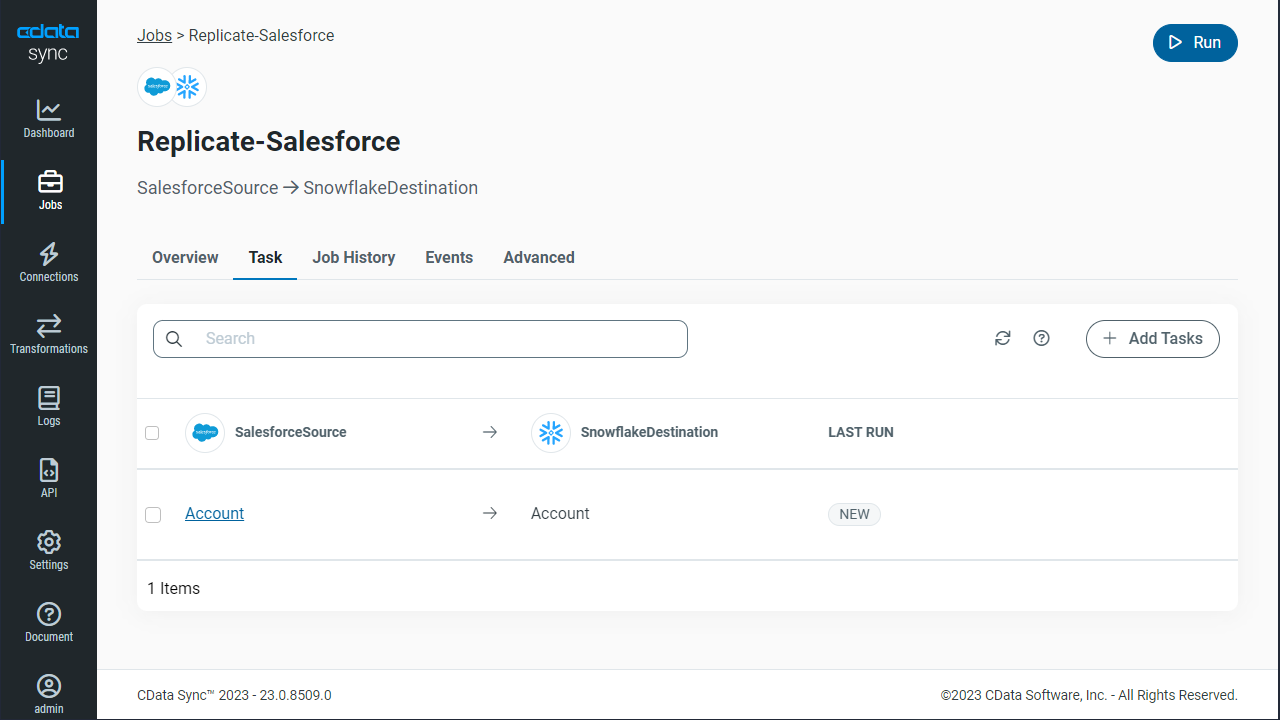
Replicate Entire Tables
To replicate an entire table, click Add Tables in the Tables section, choose the table(s) you wish to replicate, and click Add Selected Tables.
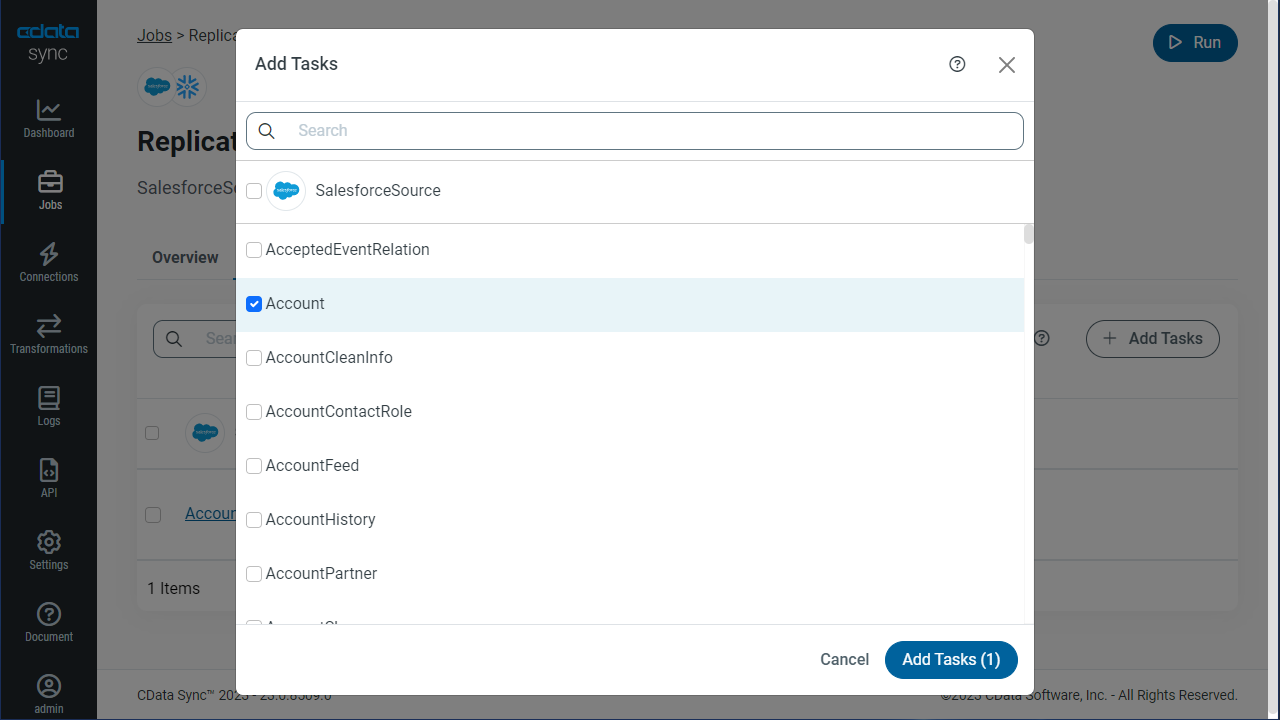
Customize Your Replication
You can use the Columns and Query tabs of a task to customize your replication. The Columns tab allows you to specify which columns to replicate, rename the columns at the destination, and even perform operations on the source data before replicating. The Query tab allows you to add filters, grouping, and sorting to the replication.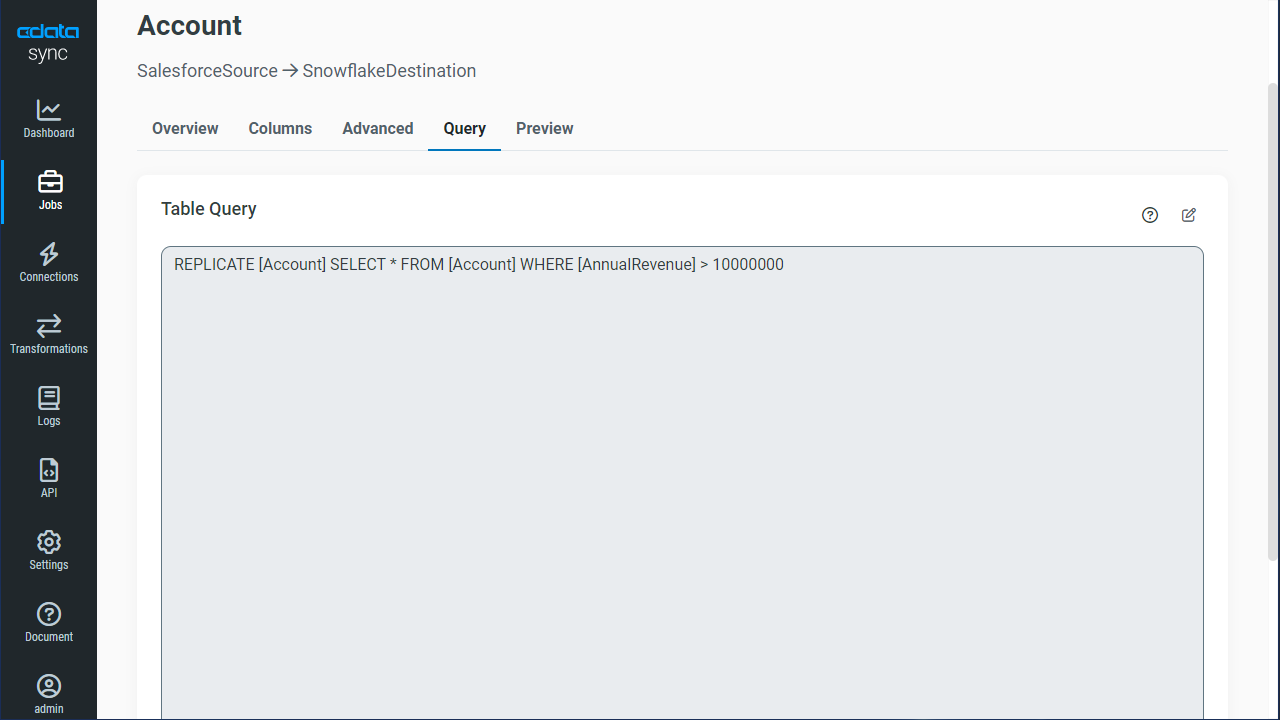
Schedule Your Replication
In the Schedule section, you can schedule a job to run automatically, configuring the job to run after specified intervals ranging from once every 10 minutes to once every month.
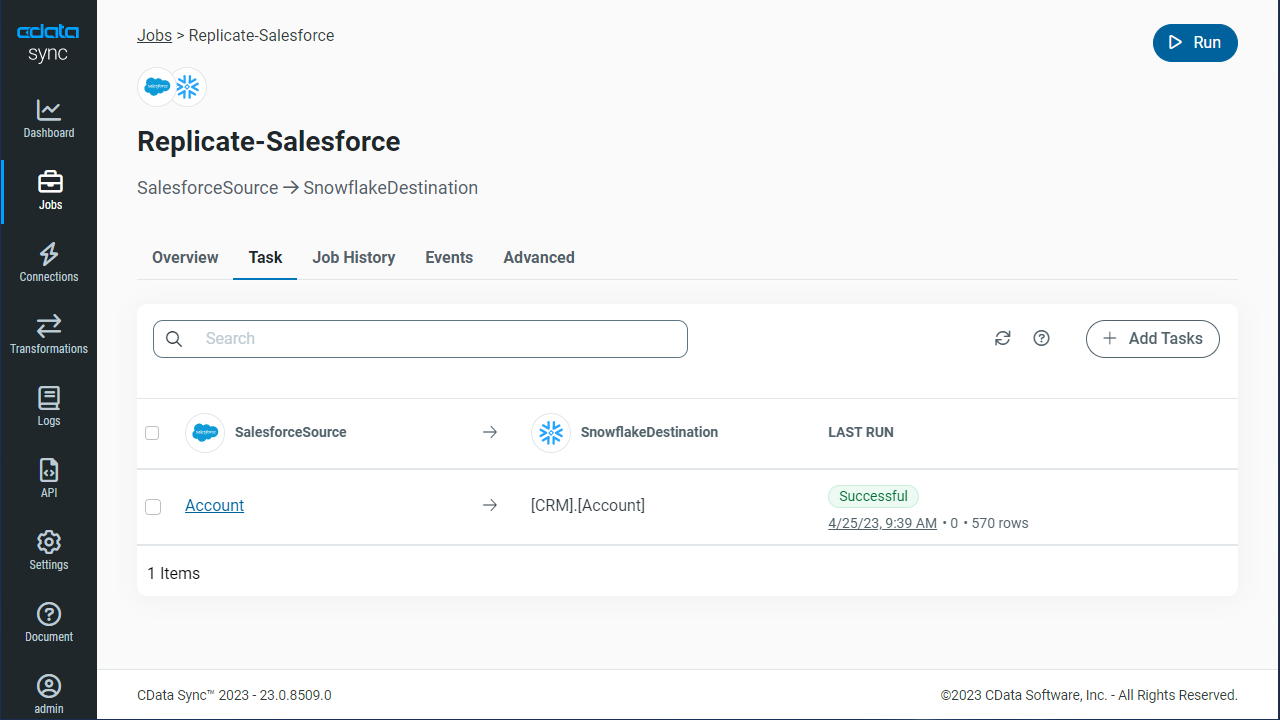
Once you have configured the replication job, click Save Changes. You can configure any number of jobs to manage the replication of your Bullhorn CRM data to Snowflake.






